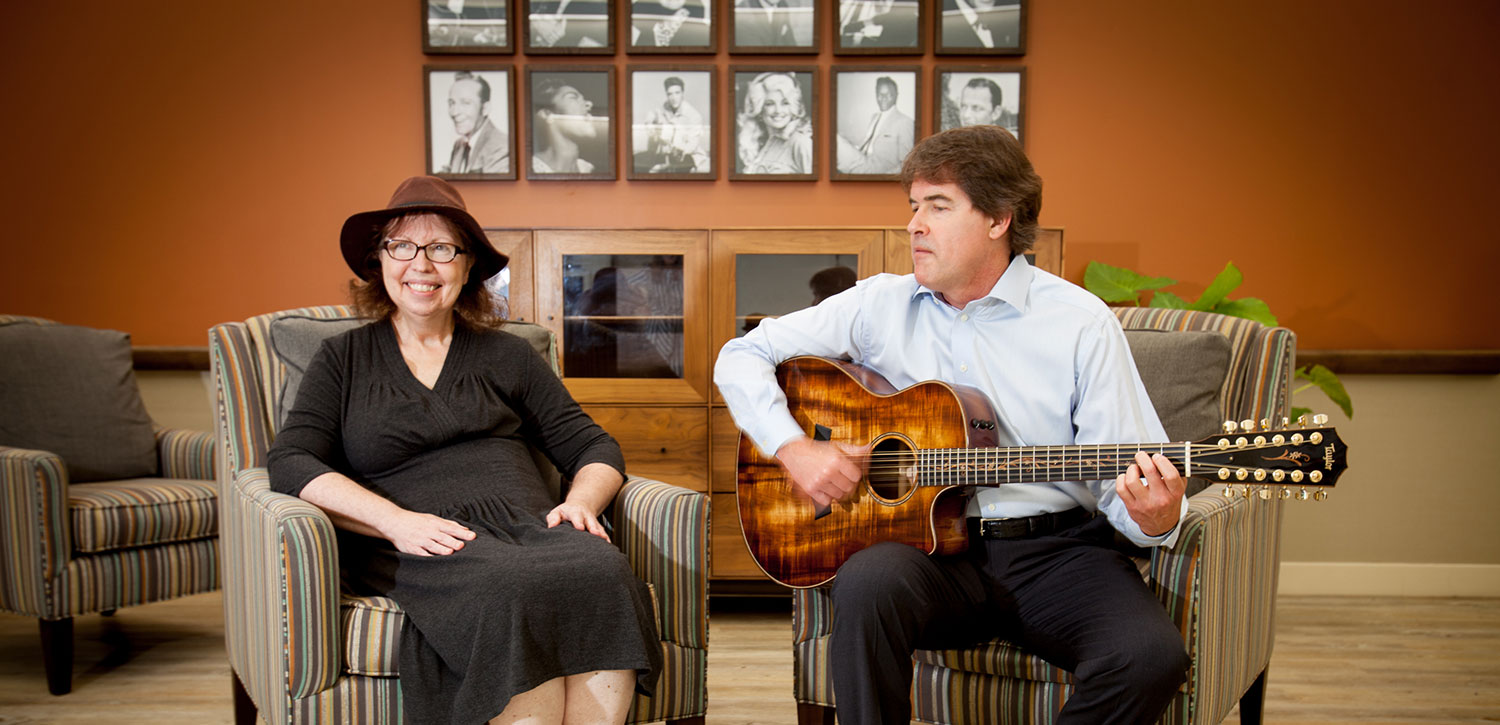By Genevieve Scott, MT-BC, Abe’s Garden Life Engagement Coordinator and Music Therapist
The power of music is no secret to team members and families visiting Abe’s Garden. Walking down the hall, you can hear residents singing, see two people dancing together, and feel the resulting joy. What is it that makes music so accessible across generations, abilities, and backgrounds?
Decades of studying music and neuroscience have shown we’re biologically designed to experience music because it’s processed across several areas of the brain. We dance to music because it stimulates our motor cortex. We sing to music because it’s processed in language areas. Music calms us down because it flows through the brain stem where breathing and heart rate are regulated. Music stimulates a range of emotions because musical memories live in the amygdala with our feelings. We are built to experience music as much as we are built to breathe.
Anyone can access music in some capacity due to the way it’s processed. This makes music a powerful tool for connecting with those who have dementia.
Music can also provide an outlet for meaningful expression with minimal frustration. If a loved one with dementia is frustrated, it may help them to listen to deep and heavy blues music to validate the feelings they’re unable to express. If a loved one feels isolated, listening to music from an impactful time in their life can help them connect with the things they love. If a person wants to express joy and love, they can do that through dancing and singing.
Click here to learn more about using music to engage and view other brief, free caregiving videos.

